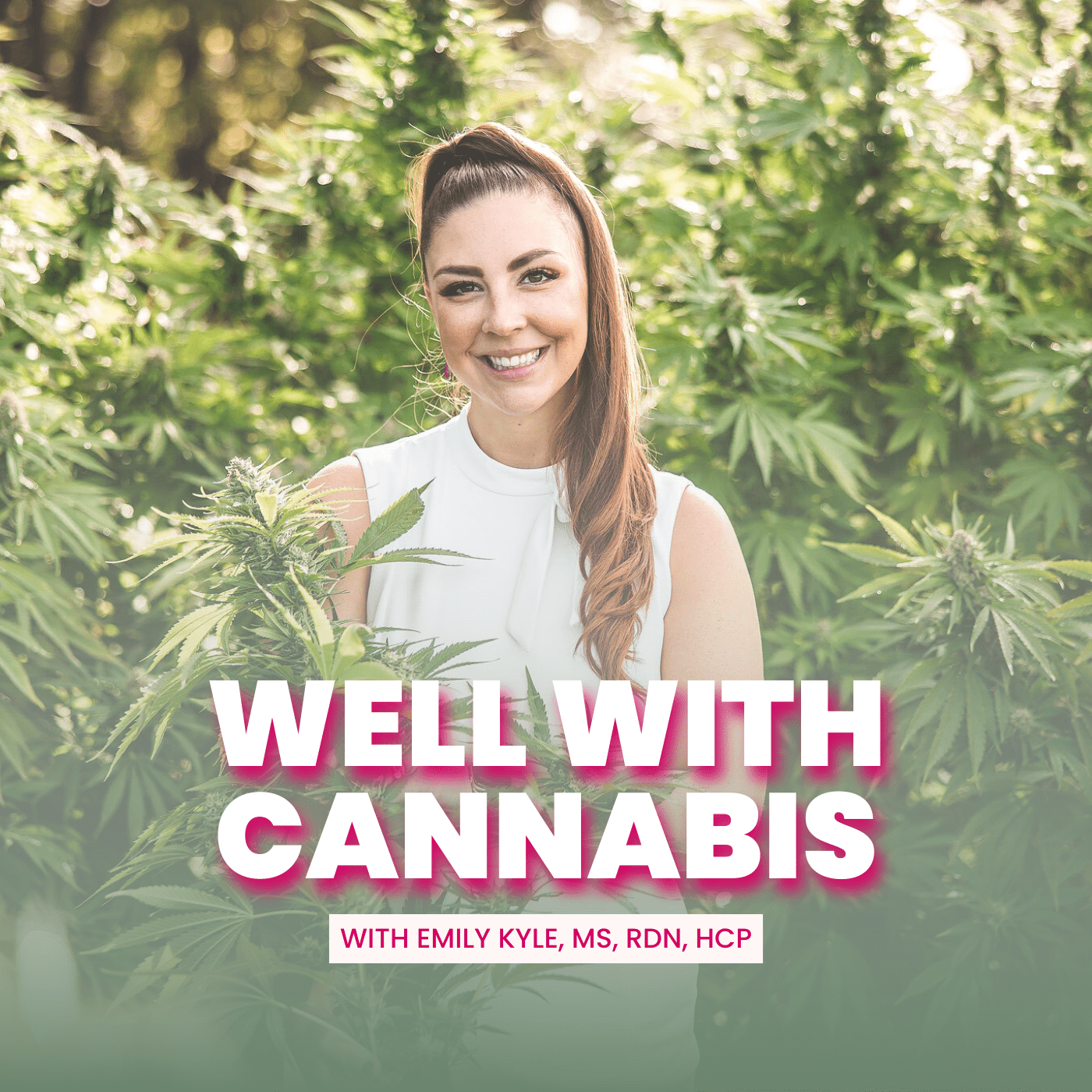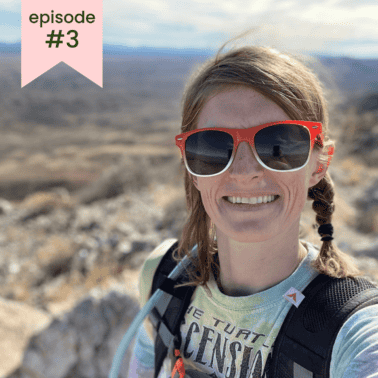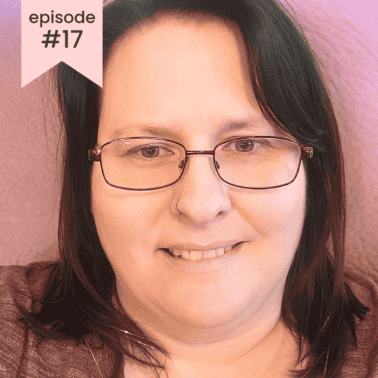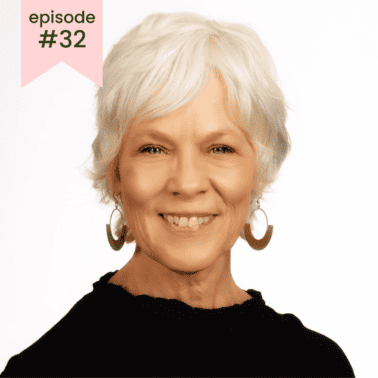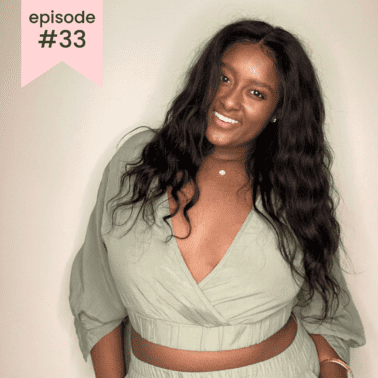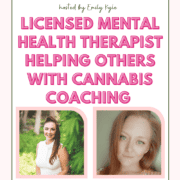In this episode, we explore the intersection of cannabis and mental health with Licensed Mental Health Therapist turned cannabis coach Laura Connelly. This informative conversation sheds light on how cannabis can be a pathway to wellness, offering hope and guidance for those seeking alternative methods for well-being.
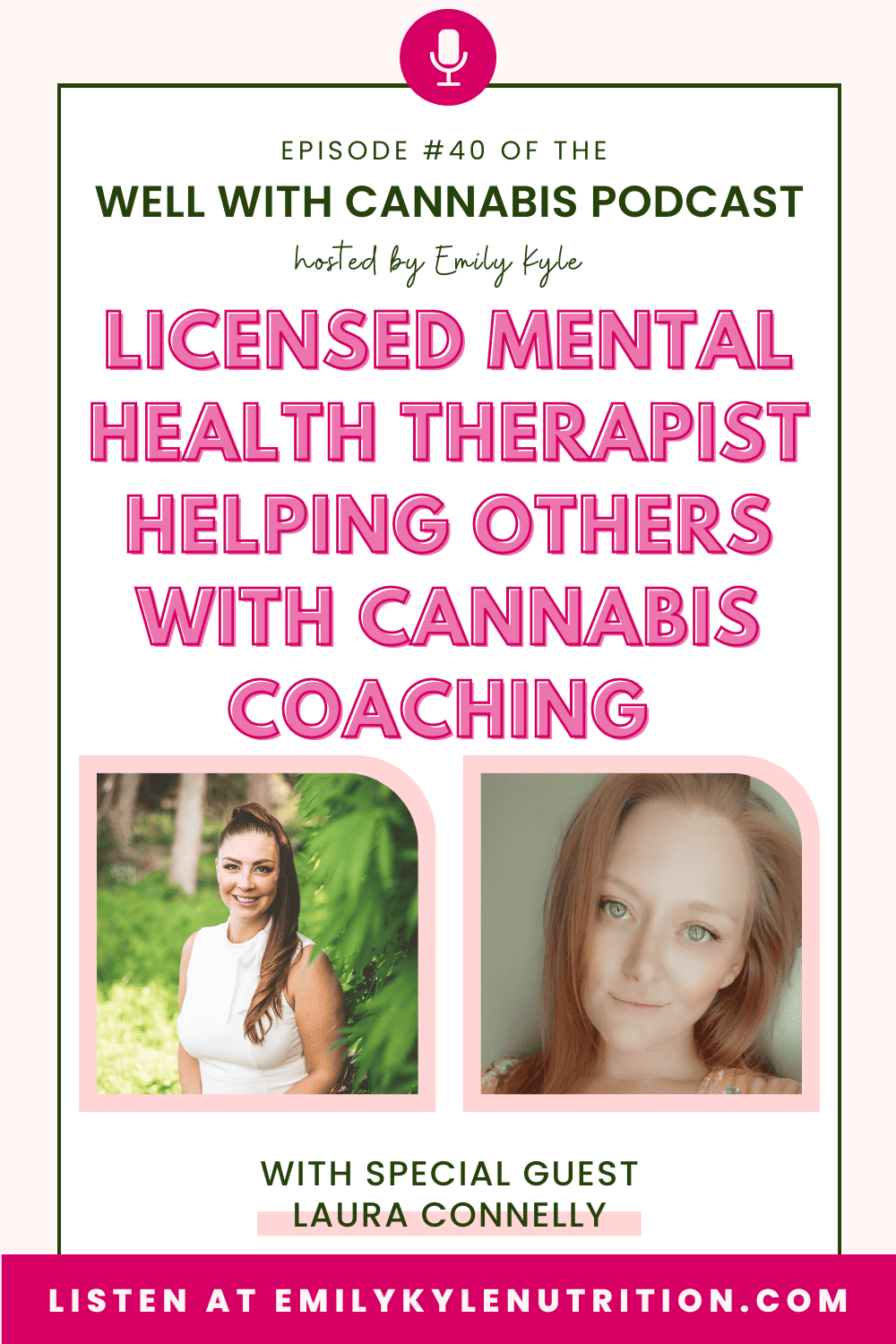
Table of Contents
Features
- Release Date: Monday, August 14, 2023
- Episode Number: Season 1, Episode 40
- Special Guest: Laura Connelly founder of ElevatedWellnessCoach.com
Listen To The Episode
Click the play button above to listen to the episode.
Listen to all podcast episodes →
Why You Will Love This Episode
In this week’s episode, we dive deep into the world of mental health therapy with our special guest, Licensed Mental Health Therapist Laura Connelly.
Laura shares experiences from her own 15-year relationship with cannabis and explores the ups and downs she has encountered along the way.
Laura reflects on the challenges she faced when coming out of the “green closet” and how societal stigma impacted her perception of cannabis.
As a wife, mother, and therapist, she found herself questioning why she should feel ashamed for indulging in something that brought her joy and relief.
We dive into Laura’s personal journey of self-discovery, where she found solace in cannabis and its ability to alleviate symptoms of anxiety, depression, and anger.
She candidly speaks about how cannabis has improved her mental health and strengthened her connection with her son and herself.
After years of hiding her true passion, Laura made a bold decision to embrace her love for cannabis and turn it into a career. She left her role as a therapist and is now a certified cannabis health coach and content creator.
Through her work, Laura empowers others to find their mental and physical wellness through the therapeutic benefits of cannabis.
Laura’s story is one of resilience, authenticity, and self-acceptance, inspiring anyone who has felt the need to hide their true selves.
Related Episodes
Podcast Episodes
Using Cannabis to Connect to Your Intuition
Podcast Episodes
Homeschooling Mom Finds Pain & Anxiety Relief with Cannabis
Podcast Episodes
Using Cannabis in College to Manage ADHD and Anxiety
Full Transcript
Laura: There are a lot of different ways. You may not think that cannabis is directly helping you lose weight. It’s not going to be a weight loss supplement in that way, but I think in a lot of ways, it can help you lose weight because it gets your mindset right; it makes you feel like you’re more in the mood to work out.
Announcer: Welcome to the Well With Cannabis Podcast, a show dedicated to telling the life-changing stories of those who live well with cannabis all while teaching you how to do the same. Meet your host, Emily Kyle, a registered dietitian nutritionist turned certified holistic cannabis practitioner. Emily changed her life for the better with the help of the cannabis plant, and now she’s committed to helping others do the same.
Tune in each week to hear heartwarming stories and gain the knowledge you need to feel connected, inspired, and supported on your own cannabis journey. Whether you’re a new cannabis consumer or a lifetime lover, you’ll benefit from these uplifting tales of real-life journeys that will show you how you, too, can live your best life well with cannabis.
Disclaimer: Hi there. Before we jump into today’s episode, I wanted to share a note on potentially sensitive content. The episodes on the Well With Cannabis Podcast are created for adult audiences only. We will, at times, cover sensitive topics, including but not limited to suicide, abuse, mental illness, sex, drugs, alcohol, psychedelics, and the obvious use of plant medicine. Explicit language may be used occasionally. Please refrain from watching or listening to the show if you’re likely to be offended or adversely impacted by any of these topics.
The information on this show is for informational and educational purposes only. It does not constitute medical advice. If any of the content on this podcast has brought up anything for you, please reach out or speak to a professional or someone you trust.
Emily: Hello, and welcome back to another episode of the Well With Cannabis Podcast. I am super excited to be here today with Ms. Laura Connelly from Elevated Wellness Coaching and we’re going to talk about all things cannabis, reefer madness, the stigma, coming out of the green closet, and now what she is doing in cannabis work moving forward. Welcome to the show. Thank you so much for joining us.
Laura: Absolutely. Thank you so much for having me. I’m excited to be here.
Emily: Of course. When I read a little bit about you, you said that you and cannabis go way back and I felt that you said 15 years. Let’s talk a little bit about that because you said that you and your cannabis relationship had had its fair share of ups and downs. I’d love to talk about how that started and brought you to where you are today.
Laura: Absolutely. So I fell into cannabis just for fun, initially, just like many people do. I went to college and it was provided for me and it was just an exciting new thing to try. It was something that I just enjoyed over alcohol mostly. It was just more enjoyable for me. I smoked occasionally, but I was assaulted during my freshman year of college and that brought me to the wellness aspects of cannabis.
Laura: So I like to say that it also came around accidentally. After the assault occurred, I continued to smoke for fun. I just continued to smoke for fun, but I started noticing how it helped me feel a little bit more comfortable in these social situations, and I was feeling less anxious. It was really an amazing thing to see. This was about 15 years ago, and at that time, my community, my friends, and I didn’t know that cannabis was a wellness tool.
Laura: I just continued smoking for fun but realized that this was providing me with so much more than that. Eventually, I continued that route by smoking for fun and became a mental health therapist. And I started to make the connections even more so through a lot of my clients who are coming in telling me, “I’m struggling with anxiety, I’m struggling with this or that, and the medication is nice, but the cannabis is really helping. I don’t want to stop smoking. This is actually really helping me.” And I finally realized that it wasn’t just me.
Emily: That’s so cool that you got to see that from the other side.
Laura: Absolutely. I think that’s when it really started to dawn on me that cannabis was not just a drug. I went through the D. A. R. E. program; I was in that class of people. This was shunned for so long, but it’s something that could be really helpful for so many people for so many different reasons. And it was amazing to see through that mental health journey, becoming a therapist, how many people and different diagnoses could be helped with cannabis. It was really incredible.
Emily: Oh, my gosh, that’s amazing. Now, are you able to talk a little bit about your work? Did you ever feel shame or the stigma that normal stuff that we typically have as health care professionals working in a normal job?
Laura: Absolutely. I could always say that I understood where someone was coming from or those types of things, but I never wanted to be one to admit that I smoked and received the benefits of cannabis, as well. I was always afraid to admit that.
Laura: And on the other side of it, I’m also a mom. I have the stigma, too, of just being in the community as a mother and somebody who has a family and trying to take care of things facing that stigma. So it was hard all around, I think, for me to admit that all the time.
Emily: Absolutely. I felt the same way too. And then I connected with you because you came out of the closet and called it the green closet, which I loved. And I had a similar experience where I was like, “I just have to get this out into the world. I can’t live pretending anymore.” Did you have a similar experience, or was it like a slow nudge out of the closet?
Laura: So it’s funny, if you knew me really well, at this point, obviously it was pretty obvious that I had been enjoying cannabis for some time, but I think it really was a big burst out of the closet once the pandemic hit. I think if anybody was unaware at that point, that’s when they found out. But for me, it was watching people struggle, watching my clients as a mental health therapist struggle so much and then being told that maybe they couldn’t get the medication that they wanted because they were smoking weed and being forced to stop something that was helping to have something that we could charge them for.
Laura: It started making my job feel a little bit less helpful, less like what I got into it for, and that was really frustrating. So at that point, I was like, “You know what? This isn’t something I feel like it’s worth hiding. It’s not benefiting me. It’s not going to benefit anybody else who is going through this and feeling like they have to hide it.”
Laura: So at that point, I shouted it to the world between blogging and starting a YouTube channel, all that good stuff. I actually ended up leaving mental health therapy and becoming a cannabis health coach. I think that is an incredible intersection of things, which has been really fun, but it just brings that awareness to where I can tell people that I use cannabis, too, and it is okay. It’s great that you’re getting those benefits. It’s not weird that you’re getting those benefits. It is a wellness tool that can be used. So I think that’s really what pushed me right out of that green closet.
Emily: It’s so beautiful and important for your work as a mental health therapist to be somebody who can say, “I use cannabis; I understand cannabis. You’re not weird. I know why you feel better.” People have to love you. They have to meet you and be like, “Oh my gosh, thank God. I finally found someone who understands me.” It’s got to be an amazing feeling.
Laura: It is, and that’s really, that’s, what brings me to it so much is that being able to make other people feel like they’re not crazy. Everybody has mental health struggles, and just because you’re going to put a diagnosis on yours doesn’t mean you’re any worse or better than anybody else. If there are things that can help, then that’s great. I think that cannabis can be one of the biggest wellness tools in the toolbox.
Emily: Oh, I’m shouting it right there with you. Tool in the toolbox. It’s not the only tool. It’s not necessarily the best tool, but it works when used with all the tools. You’re a handyman. You’ve got it now, if I could ask you a little bit from your experience working in the mental health field. What type of mental health conditions do you see most frequently being benefited with the use of cannabis?
Laura: I think anxiety jumps to mind first. And that’s really what I struggle with the most, personally. And I think that what cannabis helps me with the most is quieting the mind. And that could range from anything like during the day to being able to focus on things or even at night if you can’t sleep and insomnia might be a struggle. I think those are major things I see cannabis helping with and even depression. I think that can be a little bit of a different game. I think the CBD can maybe be a bit stronger to help there, but everybody is so different that it is a fun little puzzle to work on.
Laura: And so I think, yeah, anxiety and depression are big. It’s surprising, but I think people use cannabis to deal with grief, as well, or even parenting struggles or anger issues. It can be surprising how it can just calm in many ways, calm the body, calm the mind, and no matter what mental health struggles are going on, I think it really is a help in that way.
Emily: Absolutely. I feel like cannabis is the missing piece in the mental health struggle that we’re currently phasing in our healthcare system today. If we could talk about it, we could educate people about if we could give them the option to try something. And I don’t know if I could ask you this as well.
Emily: Do you see a big difference between people on pharmaceutical medications that are using them to control anxiety, depression, etc, versus cannabis? Are there different side effects that would make one favorable over the other?
Laura: Absolutely. I think in my opinion, at least from what I can see if the side effects from cannabis are going to be things like getting hungry or falling asleep, those are not the worst side effects you could have. As long as you’re careful, maybe not overdoing it and taking a drive or things like that, but when it comes to pharmaceutical medications, the list of side effects can go on and on. It’s frightening sometimes.
Laura: Sometimes, when I’m talking to people about dialing in their cannabis use, it’s interesting because sometimes they don’t want to put in the effort to find the terpene or strain that works best for them. I understand that, but in mental health, you’re always trying different medications, and you’re trying to find what works.
Laura: On top of the side effects and finding what works for you, there’s always the fear that if it doesn’t work, it could make things worse. It’s awful when you hear that the side effects of a medication are suicidal thoughts or things that these people are already struggling with, and it just makes this worse. It can’t be helpful to think that something could either go well or terribly wrong. It’s nice to have cannabis because it could either go well or it could go not so well, but it would never go terribly wrong.
Emily: Absolutely. I’m sure that you agree with me on this.I’m a huge supporter of anything that works if anybody is listening. If pharmaceutical medications are working for you and making you feel well, you do you. I want people to feel well in all aspects, whether it’s with pharmaceuticals, cannabis, or a combination of both. So making sure everybody feels confident in what they’re doing.
Emily: If you are somebody who is living with anxiety, and depression, and is interested in trying cannabis, I want to talk a little bit about using cannabis specifically for anxiety because we have this really slippery slope where too much THC can make anxiety so much worse. I get so many people coming to me who tell me that they have anxiety, but every time they use cannabis, they freak out and have a terrible experience.
Emily: If that is happening, you’re using way too much. People really are in this mindset, almost like those college days where they would try whatever and they don’t care how much it is. But if you’re managing anxiety, you need to be careful with how much THC you consume. Can we talk a little bit about that and how you would guide somebody in the first shot with cannabis and anxiety?
Laura: For sure. Yeah. So I think the quintessential kind of phrase is to start low and go slow. So I think that is key, especially when dealing with things like this because you’re right. THC can trigger paranoia or strong anxiety; it just feels uncomfortable. And it can actually cause an elevated heart rate. In general, THC can, and that can alone trigger feelings of anxiety. So if you’re physiologically feeling that way, it comes out too.
Laura: It’s definitely worth being careful, starting low, going slow, starting with a higher CBD strain or a CBD-only strain, and working off of that and realizing that THC is fantastic. It’s a lot of fun, and it’s a great cannabinoid, but it’s only one cannabinoid. You can get so many other benefits from cannabis without going high on the THC. It’s hard to break through the marketing on that too. I think that a lot of people think that THC is the thing; that’s all you want.
Emily: I love THC, but there’s a limit we own. And as you said, pairing other cannabinoids is something that people really miss, and adding CBD is. A lot of people say, “Oh, I tried just CBD, and it didn’t work for me.” Totally understandable. But if you can mix the right amount of CBD with the right amount of THC, they work together, and it can be the most magical experience once you find what works for you.
Emily: But as you said, you have to be patient too. And it is like trialing other medications. It doesn’t just happen at once. It’s not like the first time. Maybe some people are, and I hope everybody feels amazing for the first time. But in most cases, it takes a long time. Trial and error of trialing different products, application methods, and strains to find what works for you. Do you recommend people be patient and really allow themselves to flourish on this journey rather than just trying it once and leaving?
Laura: Absolutely. Yeah. I think trying it once and leaving, does happen. So many times, you hear those stories where people decided it wasn’t for them. And yeah, I feel bad for those people because I can understand being hesitant and then being afraid to come back to it. But absolutely.
Laura: I think every experience can be different, even as a seasoned smoker or as a seasoned consumer. It’s still different every time you get something new. So I think it’s very important to pay attention, go along for the ride, consume low amounts, especially if it’s the first time you’re consuming or if it’s the first time you’re consuming something new, and being able then to even track it in any way that’s going to work for you.
Laura: No matter how simple it is, if it’s easier to plug it in like the notes app on your phone, then that’s great. If you want to write it down in a journal or actually get one of the dedicated Goldleaf cannabis journals, things like those, it’s just nice to, even just in the beginning, keep track of what’s going to work, what strain, what terpenes, what you’re getting, what’s working for you.
Laura: And then once you have it dialed in and then, you can always go back to journaling. You don’t have to do it forever. But it’s nice to do, I think, in the beginning, to keep track of those things. Because it’s a lot, this is a lot of stuff.
Emily: Journaling is like the unsung hero of cannabis health care because, for so many of us, if you’re in chronic pain or if you’re experiencing anxiety at the moment, you’re not going to remember what you took and when you took it, you have to write it down.
Emily: And then you’re not necessarily going to be like 20 minutes later. How do I feel? But the more data you can collect to look back on, you can see trends and what’s working. Oh, this is not working. It really just gives you insight, and in the moment, it’s just so hard to gather all the thoughts.
Emily: If you could jot it down, like you said, even in the notes app on your phone. I actually love the Goldleaf journals. They’re very beautiful. If anybody’s asking, I’ll leave a link so you can look at them. They’re specifically for tracking your cannabis consumption. And it’s nice to have. I’m a paper-and-pen kind of girl. I love to write to them. So if anybody’s interested, it’s just really helpful to know where you’ve been so you can know where you want to go.
Laura: Absolutely. Yeah. No, that’s a great way to put it. It’s crucial, I think so that you can have a roadmap for yourself because everybody is different. Everyone’s going to react differently. So it’s nice to learn about yourself that way.
Emily: Absolutely. That’s the one thing with cannabis. And I say this over and over. I feel like I’m repeating myself, but if you’ve never heard me before, your experience with cannabis is 100% unique to yourself. It will never be the same as somebody else’s. You have your own unique endocannabinoid system, and your own personal physiology.
Emily: So people want to say, “If my friend did this, I could do this.” No, it’s 100% so unique, as unique as your immune system. Do you know how people jump on those fad diets? I don’t want it to be like that. I want it to be just something so personalized to each person because, again, we’re just all so different, and our needs are also different, especially in this crazy life.
Laura: Yeah, a hundred percent.
Emily: Now, let’s transition out of mental health care and into motherhood, although I feel like they actually go perfectly together because we need a little bit of mental health support in our parenting journeys. Let’s talk a little bit about cannabis and motherhood and what that looks like for you.
Laura: Absolutely. So I have been using it; my son is eight. So I’ve been using cannabis.
Emily: I have an eight-year-old boy, too.
Laura: Really?
Emily: Yeah, they’re so cute!
Laura: They should be friends.
Emily: I know!
Laura: I think they certainly keep you busy. That’s for sure.
Emily: It’s eight going on 18. It’s crazy.
Laura: Yeah. It’s a whole new world out there, but I think what keeps me going most of the time is cannabis, and I have been using it for my son’s whole life. For many different reasons: taking care of my own mental health, being able to take a break, and taking care of my anxiety so that I’m not snapping at him for no reason. That’s a big thing.
Laura: And just being able to enjoy those moments. I think it gets me out of my head so that I’m not worried about all of those “shoulds” that I have as a mom, like I should be doing the dishes and I should be doing the laundry, but he wants me to play this game. I’m going to sit down, and I’m going to play the game, and that’s going to be more fun and better for both of us in the long run.
Laura: So I think it’s a tool for me to be able to pull myself out of my head and out of those moments where I’m like, “You know what? The house can wait; everything else can wait. His time is more important, so we’re going to, we’re going to do whatever he wants to do.” So I think that is where that comes in for my parenting.
Emily: It is so beautiful and so special, and I’m so glad that you shared that with us because so many of us were so scared to admit that we use cannabis as parents, even though it could be potentially one of the greatest, most helpful tools that actually most positively impact our children in the long run.
Emily: And I find so many moms like me, like you, who are responsibly using cannabis, who are really creating these really special relationships with their children that are more present, that are more meaningful, that are kinder and more caring. None of us should feel bad about that.
Emily: I like how you said that you don’t snap as much as many moms. We just snap out of frustration, feel bad, and go through the cycle of guilt. If you could eliminate just a little bit of that, you’d feel so much better. We put so much pressure on ourselves to be present, to be in the moment, to enjoy every second, and I really was never able to do that unless I was consuming cannabis. I was always worried about something else.
Emily: And with cannabis, it’s such a beautiful thing to have these special relationships with our children and prove the stigma is very wrong.
Laura: Absolutely. No, it really is. I think it makes parenting, I wouldn’t say, easier, but it just makes it more enjoyable, more fun. Yeah, you’re able to get into it a little bit more and get in touch with your inner child so that you can relate on a different level. It’s just more fun and relaxed. And I think it takes off those societal pressures that are running through your mind.
Emily: Absolutely. And at the end of the day, I sleep better knowing that I’m the best parent I can be. And I don’t really care what anyone else says because they’re not in the walls of my home. They’re not in those special moments with my children. And at the end of the day, the only people’s opinions that matter are actually my children’s. I really think that they and my husband should all be pretty glad that I use cannabis because it’s a happier, calm household. Now, my son obviously knows all things cannabis just because of my job and what I do, and it’s a little bit different at my house. How does that look at your house?
Laura: I am very open about it. I want to be open and honest. I remember one time he was a little bit younger, and somebody had brought up smoking something, and mentioned somebody smoking a cigarette somewhere. And he goes, “Oh, my mommy smokes.” It took me a second to realize that I should explain the difference between cigarettes and cannabis and what’s happening. I realized that he was picking up on what I was doing, that he could see me and that, but I really wanted to tell him that this was something I was doing to benefit my health.
Laura: Other choices that other people make are fine for them, but this is what I’m doing, and this is why. I think it’s really important to have those conversations because they pick up on so many things, especially with social media now. I mean, you can hand my kid a phone, and he could probably do anything on an app ten times better than I can.
Emily: He can YouTube it up. These kids! It’s ridiculous.
Laura: It’s crazy. So, I wanted to give him the best information that I could before he went out there and got it from somewhere else. So I have
Emily: So I have to ask you this as a mom of a child with a similar age. Does your school still do the D. A. R. E program?
Laura: I have not seen it.
Emily: Oh, see, mine’s coming up. I think they do it in fifth grade. And I am constantly wondering how I feel about it because we talk about all drugs. We talk about cannabis, we talk about other drugs, and I think he’s pretty well rounded, but then he’s going to go to the D. A. R. E. program, and they’re going to tell him something different than what I’ve told him. I’m asking myself how we navigate that moving forward as parents who are just a little bit more open with our children. We’ll have to cross that bridge when we get there.
Laura: I know we will have to talk, but it is interesting because I think it’s a fine line to walk. We’re not lying, and they’re not necessarily lying, but people are not always completely informed on everything, and so it’s a delicate situation.
Emily: Yeah, they’re different intentions, too. We talk about alcohol, and they see us consume alcohol in social situations, but we don’t overconsume alcohol. Maybe I’ll frame it like that.
Emily: Oh, D. A. R. E. I suppose it’s a good thing, but I don’t know. We live in a very small town. All the teachers, everybody knows who I am and what I do. So we’ll see how it goes. We’ll transition out of motherhood. Let’s transition into cannabis coaching and let’s talk a little bit about what it looks like to work with a cannabis coach for any of our listeners who might need a little hand holding. Who’ve never worked with a cannabis coach so we are unclear about what it looks like.
Laura: Absolutely. So for the major coaching program, it’s an eight-week program that I would take you through, and it’s really a personalized one-on-one program. So it’s really geared towards you and what it is that your goals are. And then we infuse that with cannabis. So it’s anything from your fitness goals and health goals to your mental health goals.
Laura: It could be things like even just setting schedules and having better relationships and working through life’s normal struggles and then being able to weave cannabis into those and see how it can help. So if you are maybe struggling with being able to eat healthily and sleep well at night, we can work on the ways that cannabis can then help be a supplement in your diet and even be something that you can use before bedtime. We explore how to make edibles if you do not like to smoke, or we can talk about what vaping is. It comes down to learning how to consume cannabis, the best ways to do it for yourself if you do not want to smoke versus how to use a vape if you’ve never done that before.
Laura: The whole world of cannabis can be very overwhelming, I think, if you’re coming into a brand new, especially now between the concentrates and the different tools that you can get. There’s a lot. It’s really a whole comprehensive program that you can walk through, so it’s great for both setting goals in your life and learning about how cannabis is not only affecting those things but then can move forward, affect it differently and how you can change and create goals with cannabis.
Emily: I feel like so many people need that hand-holding too. You just sparked something about how cannabis can help our physical health and our mental health and pull it all together because a lot of people assume you’re lazy, you’re going to eat chips and lay on the couch, and you’re not going to exercise.
Emily: But the more people I talk to, and I always thought this was just me, but like when I use cannabis, I love exercising, which I typically don’t. I find that I care for myself better. I generally eat healthier. I take better care of myself, and how you just said that you work with your clients and incorporate cannabis like that. Can you talk a little bit more about what you’ve seen in physical wellness when using cannabis, and how it can actually help?
Laura: Absolutely. I think the first thing that comes to mind really is managing pain. If you are somebody who doesn’t want to get up and exercise or even take a walk because it hurts your joints or it hurts this and that, being able to manage how you feel in your body by using cannabis can be such a huge thing.
Laura: And then that goes for after a workout too, if you’re recovering, it can help just feel a little bit better. And then you stay in it and the recovery process and all of that. So I think there are a lot of different ways. You may not think that cannabis is directly helping you lose weight. It’s not going to be like a weight loss supplement in that way. But I think in a lot of ways, it can help you lose weight because it gets your mindset, it makes you feel like you’re more in the mood to work out. Like one of my favorite things used to be to consume and then go to Zumba class because you get to dance around, and it’s so much fun.
Emily: Yeah. And I feel like I get more into my exercise, and it feels good. The combination of cannabis high and runner’s high for me is so… I love exercise. I’d never had such a good relationship with fitness in my life until I incorporated cannabis into it. I always like to repeat that for people because so many people are concerned that if they consume cannabis, they will not care about their diet or be less active. And I find that to be literally completely opposite in so many cases.
Laura: Yeah, it usually really is. And I think it’s, again, it comes down to how you’re consuming and what you’re consuming too, and you’re not overdoing it on certain things so that you’re not getting the munchies all the time or not feeling so tired all the time. It can be a lot of learning, and that’s also where a cannabis health coach can come in handy.
Emily: I was going to say that. A cannabis health coach has that education to help you, so if you are getting the munchies, they can suggest trying something different. Or if you are finding that you’re less active, they can tell you to try something different. When it comes to cannabis, you can tweak just about everything to get what you want. That’s why your work is so important because you can help hold people’s hands through the journey and help them get there quicker and feel better faster, which is super exciting.
Laura: Absolutely. Yep. That’s the goal.
Emily: Thank you so much for sharing all of your wisdom. Before I let you go, can I ask you the same four questions I ask all my guests?
Laura: Absolutely.
Emily: All right. The first one is, what are you most proud of in your life to date?
Laura: So other than my son, who is my pride and joy, I would say that I am most proud that I, at this point, continue to show up because it has not always been an easy journey. It’s a lot. Even just showing up on social media and having to deal with all of those things. So I’m very proud that I continue to show up and that no matter how often somebody says that I can’t speak on this or that they don’t want to hear about it.
Laura: I think it’s still important, and I want to keep showing up. And even if that means starting over fresh on certain things. Then that’s what it means, but just not giving up and continuing to show up is my private proudest moment.
Emily: I feel that in the cannabis industry, it’s always one step forward, two steps back. I feel you on that one, and I’m super proud of you for keeping going. Even just being a woman starting a business, let alone whether it is cannabis or not, can really be hard. So, super proud of you for that. What do you think your life – and this is everybody’s least favorite question – would your life look like without cannabis?
Laura: That’s interesting. The first thing that comes to mind when thinking this is just dark. I feel like it would just not be as much brightness and joy as I have now. I think I would have gone through some dark times in college which may have led to other life choices.
Laura: I’m glad this is the substance I came upon. I think it could have gone differently, and I think I wouldn’t be as good of a mother. And I think my entire career would be different. I think it shaped my whole life in many positive ways at this point, but I think just dark and dim is what comes to mind.
Emily: Yeah, I totally believe that. Someone had said as if they were trying to explain cannabis to someone, and they’re like, “It’s like living in a world of black and white, and with cannabis, there’s color.” And I thought that was the perfect way to say that. You really reminded me of that just now.
Laura: Yeah, no, I definitely get that.
Emily: Yeah. Now, I know you’ve been a lifelong cannabis consumer, but if you could go back 10, 20, 30 years, give yourself a little piece of advice, what would it be?
Laura: I think it would be to be patient, to keep going and keep trying and be patient, and also not to compare myself to others. To not always listen to what other people say and do not always believe what I think because your mind is always going to play those tricks on you when you’re playing the comparison game, but to be on my own path and trust my own path and my own intuition and things.
Emily: Last one. If you could be remembered for just one thing in the cannabis space, what would it be?
Laura: I hope it is. I would say to break through the stigma and to make people feel good about consuming, to feel good about what they’re doing with their lives, and to not feel like they’re being judged. And that way to leave that feeling with other people, I think, is the biggest thing.
Emily: Oh, and I have no doubt you do that in your work. Now, please tell us more about where people can, if they want to work with you or learn more from you, where can they find you?
Laura: Absolutely. So my website is ElevatedWellnessCoach.com. So you can sign up for a free call on that website, and we can have a little chat and be able to get to know each other, see if we would work together, and see what the issues are. I also do run a shorter program outside of the eight-week program, too, if you are interested in something like that. You can also find me on Instagram at I am now potheadplantmind. So that is where I am on Instagram and as well on YouTube and WeedTube as well.
Emily: So fun. I will put all of these links so everybody can find you, book that free call, and get that cannabis coaching you need so you can start feeling better sooner. Thank you so much for joining us today. This was a wonderful conversation.
Laura: It really was. Thank you so much for having me.
Emily: Thank you.
Announcer: Congratulations, you’ve finished another episode of the Well With Cannabis Podcast and are one step closer to discovering how you, too, can live well with cannabis.
Thank you for listening in today. We hope this episode has been a helpful and informative one. Please visit emilykylenutrition.com for more information on today’s show, show notes, guest information, recipes, and other resources.
If you want more support and encouragement on your cannabis journey, please consider joining the private Well With Cannabis Community. In this group, you can connect with like-minded individuals focused on improving their health and wellness through cannabis.
Join the group today to continue your journey of wellness together!
